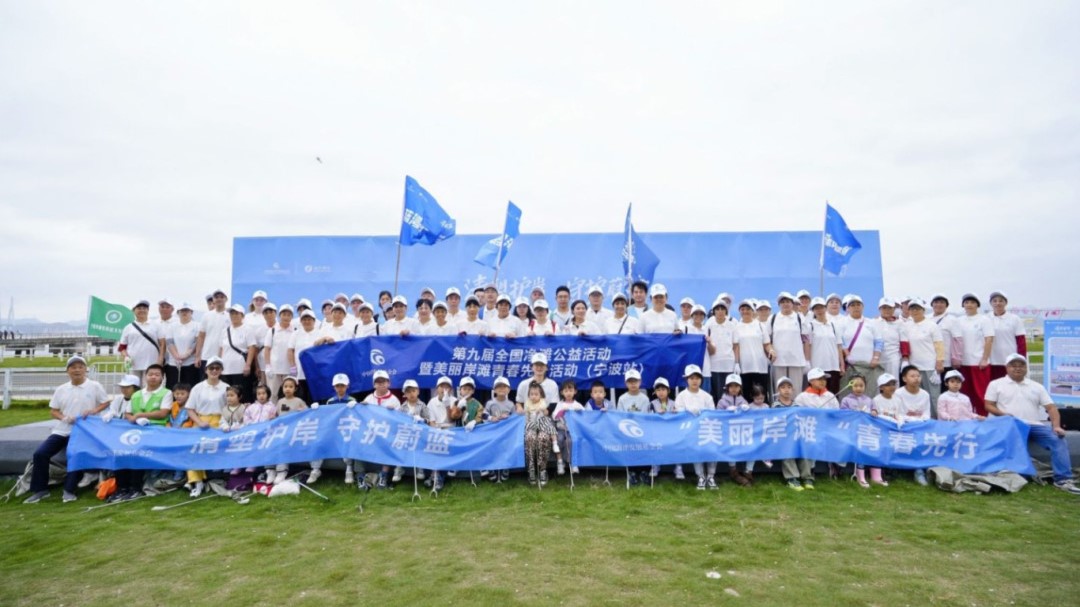Friends, have you noticed? These days, when you’re out shopping, if a product doesn’t carry a “sustainable” label, it feels like drinking bubble tea without pearls—something essential is just missing! That’s right: today’s consumers have truly evolved. We used to compare prices and functionality; now, we’re comparing who’s greener!
_1758160691_WNo_1080d1135.webp)
This isn’t mysticism—it’s data-driven reality. Products tagged with “sustainable,” “eco-friendly,” or “circular” are flying off the shelves. Why? Because our smart and conscientious consumers have finally realized: every time you scan a QR code and pay, you’re not just buying a product—you’re casting a vote for the future of our planet.
Consumer data reveals a profound shift in values: globally, 73% of Gen Z consumers are willing to pay a 10%-20% premium for sustainable products, while 65% of Millennials say the same. This willingness isn’t just lip service—it translates into actual purchasing behavior. For instance, sportswear brands using recycled polyester have seen sales grow 42% year-over-year, while electronics featuring casings made from ocean-recycled plastic exceeded pre-sale targets by 300%. Consumers are using their wallets to redraw the value map, treating environmental attributes as a core dimension of product quality.
_1758160704_WNo_1080d719.webp)
Brands, naturally, can’t sit still: “You want recycled materials? Consider it done!” And so we witness plastic bottles transforming into trendy T-shirts, discarded fishing nets reborn as chic sunglasses, and even coffee grounds finding new life in skincare products. What used to be trash? Turns out, it’s hidden treasure waiting to be rediscovered!
Enterprises are already sprinting ahead: decarbonizing supply chains, redesigning packaging to be both adorable and biodegradable, ensuring traceability for eco-products. An increasing number of companies are prioritizing the application of recycled materials as a key innovation driver—from clothing fabrics made of recycled plastic bottles to eco-packaging crafted from agricultural waste. Through technological innovation, what was once discarded is now being revitalized. Large-scale adoption of recycled materials not only reduces resource consumption and environmental pollution but also creates entirely new value chains, accelerating the transition from a linear economy to a circular one.
Meanwhile, corporate sustainability strategies are moving from the periphery to the core. Leading companies no longer view sustainability as a cost burden or a marketing gimmick; instead, they integrate it into their overall strategy and daily operations. By establishing green supply chains, implementing carbon footprint management, and publishing ESG reports, companies are achieving harmony among environmental, social, and economic benefits. This transformation responds not only to regulatory demands but also to consumer expectations and emerging market opportunities.
_1758160722_WNo_1080d1439.webp)
The rise of sustainable consumption is powered by multiple converging forces: the awakening environmental consciousness of younger generations, cost reductions enabled by technological innovation, supportive policy frameworks, and investors’ growing emphasis on ESG performance. Throughout this transformation, transparency and credibility are paramount—third-party certifications and labeling systems empower consumers to make genuinely sustainable choices.
Of course, this journey isn’t fueled by goodwill alone. Tech innovators are working hard to ensure recycled materials no longer feel like burlap sacks, while designers strive to make eco-products so stylish you can’t resist hitting “buy.” And we, the consumers? We’re busy posting “Today’s Green Purchase” on Xiaohongshu while sending brands a clear message with our spending: “If you’re authentically sustainable, we’ll gladly open our wallets for you!”
So next time you spot those eco-labels, don’t hesitate. You’re not just buying a product—you’re investing in a cooler, greener, smarter future.
Discover this amazing content and share it with your network!

Discover the successful Ningbo session of the 9th National Coastal Cleanup Campaign. Families, youth, and eco-teams united to protect the ocean, advocate recycling, and promote sustainable coastal action.

Explore recycled AS pellets: transparent, BPA-free, high-performance sustainable plastic for consumer goods, packaging, electronics, and automotive applications.

Topcentral® joined China’s national delegation at K 2025 Düsseldorf to promote sustainable polymer innovation and global circular economy collaboration.

